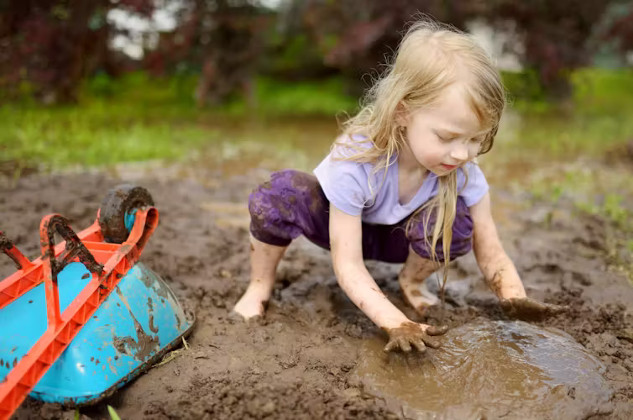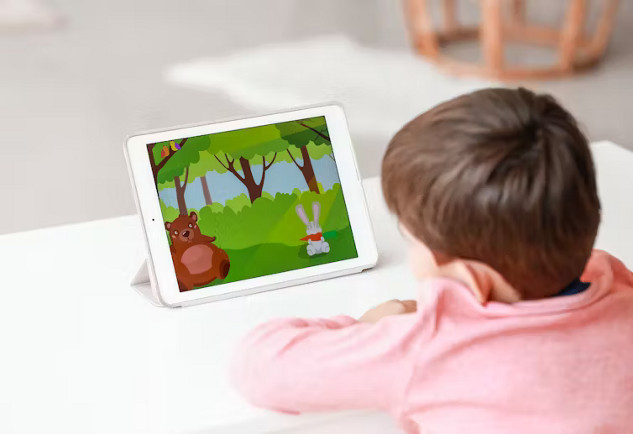
This article delves into strategies for healing and maintaining relationships in the wake of a divisive election. By embracing elements of wisdom such as resilience, kindness, and curiosity, we can move forward together, putting relationships above political differences and fostering a more unified society.

Journalism aims to inform the public, but what happens when verified facts fail to influence opinions? This article examines the challenges of factual reporting in a society where truth may not sway the public.

Recurring communication issues may signal an underlying mental health disorder, especially if tied to social cognition impairment. Understanding the signs can help identify when relationships are affected by cognitive challenges, offering insights into supportive steps for those struggling with these issues.

Materialism can erode personal relationships by fostering unrealistic expectations and prioritizing wealth over connection. Learn about the impact of materialistic values on happiness, well-being, and relationship satisfaction, especially among younger generations.

Dive into the story of two college students discovering the power of soulful connections that transcend typical relationships. Learn how their journey of finding each other as soulmates illustrates the deep, joyous encounters that can change lives forever, offering a new perspective on love and companionship.

Mud play offers more than just messy fun—it strengthens kids' immune systems. Exposure to microbes found in dirt helps children develop resilience, reduce allergy risk, and even promotes mental well-being. Learn why encouraging your child to get dirty might be one of the best ways to support their long-term health. From immune-boosting microbes to sensory benefits, mud play is a natural health ally for kids.

Trump's extreme messaging approach, recently criticized by Kamala Harris, isn’t random. Using mathematical analysis, Professor Dorje C. Brody reveals how disinformation and heightened rhetoric may impact public perception, drive voter sentiment, and shift the political spectrum. Could such tactics influence the outcome of the election, or will they backfire on Trump? This article explores the underlying principles and potential consequences of political extremism.

In today’s world, family estrangement is more common than ever. Shakespeare’s King Lear provides profound insights into the emotional and ethical complexities of severing family ties—shedding light on the heartache and difficult decisions that come with going ‘no contact.’

When a partner receives attention from others, it can stir up insecurity and defensive behaviors. Learn how unwanted partner flirtation impacts desire and relationship investment.

Parents often use “good girl” or “good boy” as praise, but it may not always foster healthy development. This article discusses why rethinking praise is crucial for encouraging self-regulation and confidence in children. Learn how using process praise and focusing on effort instead of outcomes can help children develop resilience and a healthy sense of identity.

A 25-year study shows that empathy in parenting teens creates a ripple effect across generations. Parents who model empathy help their teens develop this skill, which they pass on to their own children. Learn how friendships play a vital role in fostering empathy and shaping supportive parenting.

Running effective workplace meetings requires clear objectives, defined roles, and streamlined agendas. Learn productive meetings strategy to reduce time-wasting and maximize productivity. From setting a clear purpose to encouraging active participation, these strategies help ensure that meetings drive results and improve team collaboration. Don’t let meetings drag—turn them into valuable resources with our simple, actionable tips.

Men are increasingly emotionally disconnected, leading to rising loneliness rates compared to women. Studies show traditional masculinity norms limit male intimacy and emotional expression, resulting in health and social issues. By relying too heavily on nuclear family structures and partners for support, men often miss out on broader emotional networks, worsening isolation. How can men break free from these outdated expectations and build healthier emotional connections?

Sibling feuds can last a lifetime if not resolved. The Oasis reunion offers an example of how sibling relationships can heal, but what can we learn from it? Discover proven strategies for resolving sibling estrangement, including counseling, conflict resolution techniques, and building emotional awareness. Whether it's high-profile feuds like Liam and Noel Gallagher or personal family matters, healing sibling relationships can lead to stronger family bonds.

A global study finds that only 14% of preschoolers meet movement guidelines for physical activity, screen time, and sleep. This article explores how physical activity, limited screen time, and good sleep are essential for healthy growth and development in young children. Learn how global regions compare and what steps can be taken to improve adherence to these vital health recommendations.

Children with sensory processing disorder (SPD) struggle to interpret sensory information, leading to behaviors like hyperresponsiveness, hyporesponsiveness, or sensation seeking. These sensory issues can disrupt daily activities like eating, dressing, or social interactions. Recognizing the signs of SPD, such as aversion to textures or sound sensitivity, can help parents support their children. Occupational therapists can assess and create strategies to improve their child’s sensory experiences and daily life.

Long-distance caregiving presents unique challenges, from emotional stress to managing logistics across time zones. This article explores practical strategies for overcoming caregiving challenges, including building support networks, utilizing technology, and accessing financial resources. With the right tools, distant caregivers can provide meaningful assistance to their loved ones while balancing their own well-being. Learn how to navigate long-distance caregiving with confidence and resilience.

Digital environments for kids are often designed to keep them hooked. This article highlights the common tactics used in kids’ apps and games to maximize screen time and offers three actionable steps parents can take to help their children make better digital choices and manage their screen time effectively.

Building meaningful friendships in adulthood can be challenging, but it’s essential for mental and emotional wellbeing. This article offers practical strategies to build friendships, including putting yourself in social situations you enjoy, trying new activities, and becoming a master of the follow-up. Learn how scheduling social activities and prioritizing relationships can help you nurture meaningful connections and overcome adult loneliness.

Research shows that even though sharing sexual fantasies with a partner can enhance intimacy and trust, but it’s not always the best option. This article explores the psychology of sexual fantasy disclosure, the role of trust in relationships, and the potential risks and benefits of sharing fantasies. Find out how people decide whether to open up and what it means for their relationships.

Research shows a significant link between tablet use by young children and increased emotional outbursts, including anger and frustration. Children who spend more time on tablets may struggle with emotional regulation, leading to a cycle of increased screen time and emotional challenges. Learn how parents can manage screen time to foster better emotional development in young children.

This article explores how different families express emotions. It highlights the contrasting dynamics between two families—one that conceals emotions and another that overtly expresses them. The piece delves into the impact of these differences on family relationships and individual well-being, offering insights into navigating diverse emotional landscapes within families.
- By Nelly Some

This article delves into "Senior Housing Transition Challenges" and "Choosing Senior Care Facilities," providing essential insights for families navigating these decisions. It highlights four major areas where seniors face difficulties during transitions, such as losing independence and adjusting to new routines. The piece underscores the emotional and psychological impacts of these changes, aiming to equip families with the understanding needed to support their loved ones effectively.
















